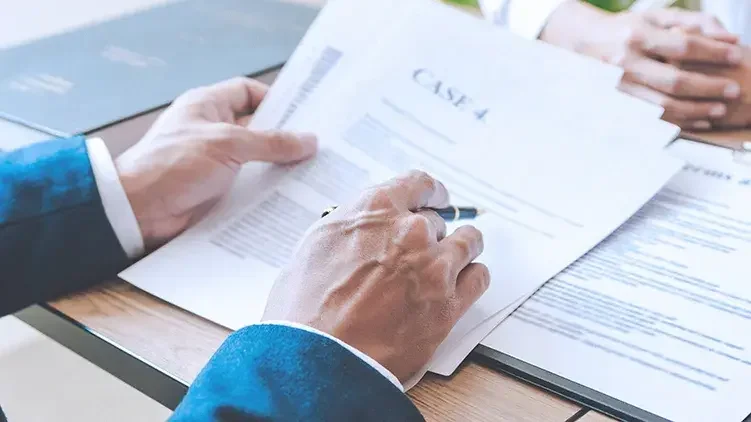Hiring a lawyer is always an act of trust. You're putting your personal, professional, or financial future in the hands of a stranger.
To make sure that choice is a good one—and to ensure that you get what you need from the attorney-client relationship—it helps to know some basics. How does a lawyer ensure your trust? What are the ethics of the attorney-client relationship? When does the attorney-client relationship begin and end?

How to find a lawyer
Jared Correia, founder and CEO of Red Cave Law Firm Consulting in Boston, says learning that you can trust your lawyer begins during the attorney search. To find someone you feel comfortable with, ask people you know and trust for recommendations, especially if they've hired a lawyer to handle the same kind of case. If you can't get any personal recommendations, look for a lawyer referral service from a local bar association.
No matter how you find a lawyer, you should vet them. In some states, you may be able to get any history of ethics complaints from the agency that licenses lawyers.
You can also look for online reviews on lawyer rating websites , or even Google reviews. If they're mostly negative, you may need to move on. Correia says that if any ethics concerns show up with a thorough search, it's a red flag that you shouldn't use that lawyer.
That said, Beth Slate, a partner and consultant at RJH Consulting, says to keep in mind that unsatisfied clients write more reviews than satisfied ones. She also suggests looking for reviews that zero in on the aspect of the attorney-client relationship most important to you.
"Everybody has different things they value," she says. "If you're somebody who needs a lot of communication and emotional support, then look for a review that says that."
After you've vetted a lawyer online, schedule an initial meeting, or at least a phone call, where you explain your situation and the lawyer outlines what they would do about it if hired. This should give you a glimpse of their personality, how they treat clients, and their fees. You should note that advice you get at this meeting is not legal advice within an attorney-client relationship, but it's often protected by attorney-client confidentiality anyway.
What you can expect from your attorney
After you've signed a representation agreement, your lawyer is legally obligated to keep your communications confidential, with only a few exceptions.
To keep their law licenses, lawyers must follow state-mandated rules of professional conduct for the attorney-client relationship. One of these rules is attorney-client privilege, which means the lawyer can't disclose anything you discuss without your permission—not even to a court.
According to the American Bar Association's Model Rules of Professional Conduct governing attorney-client relationship ethics:
- Your lawyer should have basic competence in the kind of legal work you need, or consult someone who does.
- Your lawyer should not represent you while also representing someone whose interests are against yours.
- Your lawyer may not charge unreasonable fees (as defined by state law).
- Your lawyer may not mix money they owe you with their own money.
- Your lawyer may not do anything illegal on your behalf.
How do you know you can trust your lawyer?
Experts agree that communication is a vital part of building trust. When you don't trust your lawyer, it can cause a complete and irredeemable breakdown of the attorney-client relationship.
"This has been studied," Slate says. "The No. 1 [ethics] complaint that attorneys get is for misinformation or lack of communication."
For this reason, she suggests that clients ask lawyers about when, how often, and from whom they can expect the lawyer's office to communicate with them. She also thinks clients should walk away from lawyers who aren't willing to check in regularly.
But communication goes both ways, Correia adds. "What lawyers don't like about clients is learning things after the fact that would have been important had they known it," he says. "So clients staying in touch with lawyers is really helpful."
He also encourages clients to guard their own attorney-client confidentiality. For example, don't cc the other side of the case when emailing sensitive information to the attorney. This ensures that you don't accidentally undermine the case the lawyer is building for you.
Utilize all your lawyer has to offer
Most of all, Slate says, take advantage of the expertise of this professional you've hired. They know the law and they're detached from your case in a way that you can't be.
"Part of the goal of the attorney is so you can take a deep breath and take a step away, and they'll handle that for you," she says.

